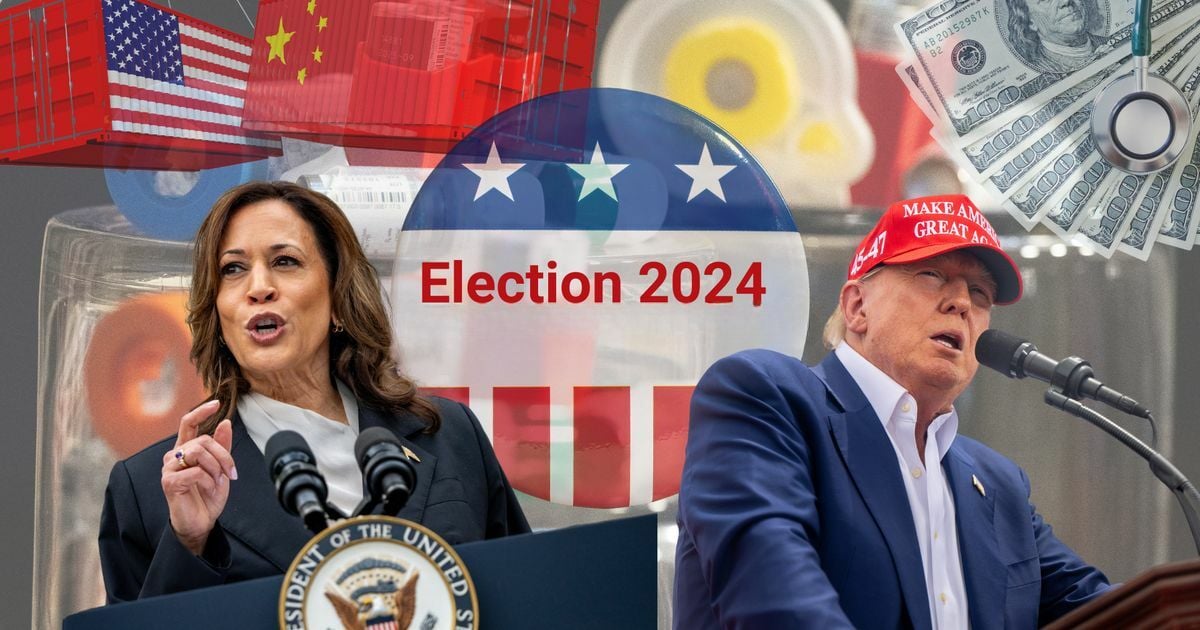Poll position: US election could rattle global markets, says ASPS

Asia Plus Securities (ASPS) is urging investors to pay close attention to the forthcoming US election, predicting it is set to send shockwaves through global markets. With expectations of heightened volatility, ASPS has delivered a stern warning: it’s time to back stocks boasting low volatility and stellar third-quarter performances for 2024.
Insider tips from ASPS suggest the starched-collar bigwigs at the US Federal Reserve are hinting at a slow-go approach to cutting interest rates. Add to that the threat of geopolitical fireworks, and you’ve got a cocktail of factors that could dictate where the smart money’s headed this month.
As November rolls in, ASPS is preaching prudence. Steer clear of flash-in-the-pan stocks likely to wobble with the political tremors from the US, especially as the Republican Party rides a wave of newfound popularity. With interest rate cuts potentially taking a rain check and global central banks keeping markets on tenterhooks, bond yields might just shoot up, fuelled further by escalating international tensions, says the brokerage.
Closer to home, the Thai economy is no speedster but there’s a silver lining. With the fiscal 2024 and 2025 budgets ready to roll, the local scene could soon see a burst of fiscal fireworks! Government plans to jazz up the economy with more spending, private investment invites, and a nudge to household consumption are on the cards. However, high debt clouds loom ominously with whispers of a credit rating downgrade.
Political sagas in Thailand promise to dial up the drama, potentially dragging the Stock Exchange of Thailand (SET) index with them. Despite a buzz about the possible dissolution of the Pheu Thai Party, ASPS believes a resolution is still far off, leaving foreign investors with cold feet and the Thai stock market swaying.
In a reality check, ASPS analysts are ringing the profit alarm bells as they predict a shortfall in listed companies’ earnings for the third quarter. Bloomberg Consensus data, hot off the press, shows profits from 132 companies, amounting to a hefty 75% of the market cap, are tumbling into the 220-230 billion baht range. That’s a gut-punch decline of 11% from the last quarter and a 14.5% dive from last year.
With an earnings yield gap (EYG) sitting snug at 3.8%, matching historical norms, ASPS is forecasting the SET index to tick upwards. Earnings per share are projected to hit 91.4 baht in 2024 with a nudge to 98.8 baht in 2025. If the policy rate stands firm at 2.25% and EYG holds at 3.8%, expect SET index targets of 1,510 points for 2024 and 1,633 for 2025, reported Bangkok Post.
Keen to capitalise on stability? Keep an eye on star performers predicted for net profit growth yet keeping volatility on the lowdown: WHA Corporation (WHA), Plan B Media (PLANB), CP Axtra (CPAXT), Bangkok Dusit Medical Services (BDMS), SC Asset Corporation (SC), and Airports of Thailand (AOT), say the savvy folks at ASPS.
What Other Media Are Saying
- Asia Plus Securities advises investors to focus on low-volatility stocks, avoid volatile ones, and monitor geopolitical risks as the US election impacts global investments and stock market volatility. (read more)
- State Street Global Advisors explores US election impacts on asset classes, highlighting sector sensitivity, regulatory changes, and inflation rates, emphasizing cautious investing due to polling uncertainties and policy implications. (read more)
Frequently Asked Questions
Here are some common questions asked about this news.
Why might the US election results impact global investments?
The election outcomes could shift policies affecting trade, interest rates, and geopolitical alliances, influencing global market dynamics.
How could slow Thai economic growth affect investor confidence?
Slow growth might deter investment due to concerns over returns and economic stability, despite potential stimulus measures.
What if geopolitical tensions escalate further?
Increased tensions could raise bond yields and market volatility, impacting investment strategies and economic forecasts globally.
Why are low-volatility stocks recommended during uncertain times?
They tend to provide stable returns and resist market swings, offering investors a safer harbour amid uncertainties.
How might Thailand’s political climate affect foreign investments?
Political instability could deter foreign capital inflows, impacting market liquidity and economic growth prospects.
Latest Thailand News
Follow The Thaiger on Google News:


























